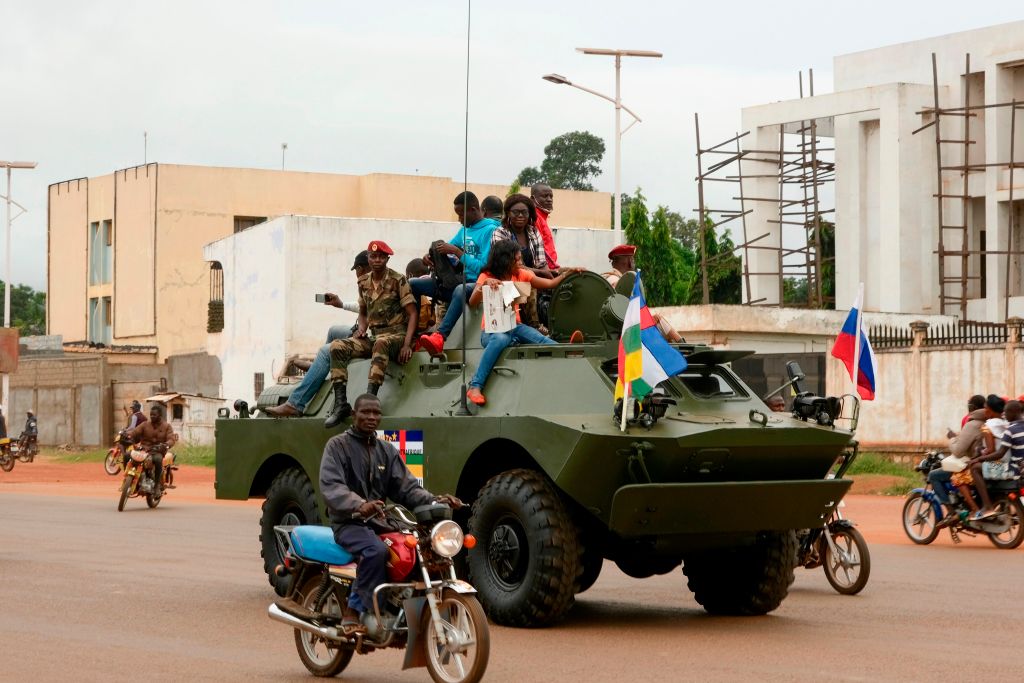ADF STAFF
Russia’s grueling war with Ukraine has not stopped it from selling weapons in Africa and across the globe.
In fact, Russia overtook China as the top weapons supplier to Sub-Saharan Africa between 2018 and 2022, according to a new report by the Stockholm International Peace Research Institute (SIPRI).
Russia grabbed 26% of the region’s market share, up from 21% over the previous five years, the report showed. China’s market share in the region fell from 29% to 18% between 2013 to 2022.
The leading importers of Russian weapons on the continent are Algeria, Angola, Egypt and Sudan.
Russian weapons are arriving in Africa as arms transfers decline globally. In some countries, observers have established a link between Russian arms sales in Africa and the presence of Russia’s Wagner Group mercenary force.
“We see it in Mali, we also see it in Libya and the Central African Republic,” Siemon T. Wezeman, senior researcher with the SIPRI Arms Transfers Program, told French newspaper Le Monde. “Even if there is a UN embargo, the weapons are coming in and they are coming in with Wagner.”
Mali’s weapons imports increased by 210% between 2013 and 2022. After Malian coups in 2020 and 2021, France and the United States became more reluctant to supply the country with arms. Russia, however, increased its arms exports to Mali after the coups, according to the SIPRI report.
As the war with Ukraine rages on, Wagner mercenaries are being deployed to the Sahel region, where unrest in recent years has resulted in military coups in Burkina Faso, Chad and Mali. Wagner asserts the Kremlin’s influence in the region through dubious counterterrorism operations and security-for-resources deals.
As Lisa Klaasen wrote on Oxford University’s Politics Blog, funds from these “no-strings-attached” arrangements — which include military training, weapons sales and access to natural resources such as gold, diamonds, uranium and oil — intend to cover losses from sanctions Russia has incurred since it invaded Ukraine. But the deals don’t seem to be paying off for conflict-ridden African nations.
Russia emerged as Sub-Saharan Africa’s leading arms dealer as certain pockets of the region surfaced as among the world’s new epicenters for violent extremism.
Nearly half of all global terrorism-related deaths occurred in parts of the region in 2021. Four of the 10 countries most affected were Burkina Faso, Mali, Niger and Somalia, where 77% of terrorism-related deaths occurred, according to the United Nations Development Program.
Although the Ukraine war is expected to signal a drop in Russian arms exports, Wezeman does not expect shipments to Africa to stop completely.
“They are likely to keep small stocks of weapons for African countries — to satisfy these states and ensure that they remain neutral in the UN Security Council or other political bodies,” Wezeman added.
Nor is the Kremlin likely to stop pushing its agenda on the continent. Russian Foreign Minister Sergei Lavrov has visited Angola, Eritrea, Eswatini, Mali, Mauritania, South Africa and Sudan in 2023, after visiting the Democratic Republic of the Congo, Egypt, Ethiopia and Uganda in 2022.

